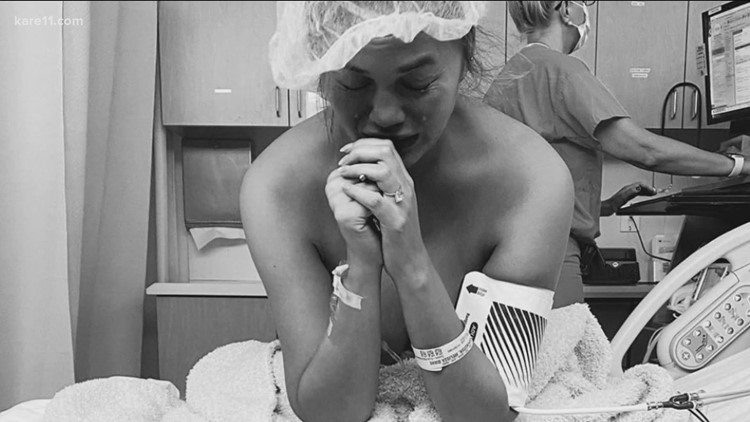HARTFORD, Conn. — October is National Pregnancy and Infant Loss Awareness Month, and it’s heartbreaking loss stories like the one shared by celebrity couple Chrissy Teigen and John Legend this week that are bringing a difficult subject to light.
“For those people who had a loss, it's obviously a devastating event to happen in their lives, and I think one of the things that’s important for people to understand is rarely is it something the person brought on themselves,” said Dr. John Nulsen, Director of The Center for Advanced Reproductive Services in Farmington.
Dr. Nulsen says the risk of pregnancy loss is very much dependent upon where you are in your pregnancy.
“About 85% of losses that occur, occur during the first trimester, so the first 13 weeks, and that’s very much age related. So if you look in women less than 35, the incidence is about 15%, 35 to 45, it goes up to 25-35%, and then in women over 45, it’s about 50-50,” he said.
Dr. Nulsen says when you look at the second trimester, the risk drops dramatically to about five percent, and then when you look at pregnancies after 20 weeks it drops even further to less than one percent.
He says losses can happen for a number of reasons: there could be a problem with the baby or a medical issue with mom.
Chrissy Teigen was reportedly in her second trimester when she experienced bleeding that couldn’t be controlled and lost the baby.
"We are shocked and in the kind of deep pain you only hear about, the kind of pain we’ve never felt before," Teigen wrote in a social media post.
She and her husband, John Legend, have been very vocal about their fertility journey, sharing in their joys and their pain.
“When celebrities bring this to the floor, it allows other folks to feel more comfortable about presenting it to their physicians, seeking out specialty care such as ours, sharing it with family and friends, as you said, it takes some of the stigma away from whatever problems they’re having,” said Dr. Nulsen.
He also says there is hope for those who have been through it.
“The vast majority of people who have had losses will subsequently go on to have a normal, healthy pregnancy, so that’s the good news,” said Dr. Nulsen.
Dr. Nulsen adds people should seek help when they need it, whether it be from a specialist, family, friends or gross like Hope After Loss in New Haven, which has been a resource for people in Connecticut who have experienced pregnancy losses.
For more information, click on the links below.



